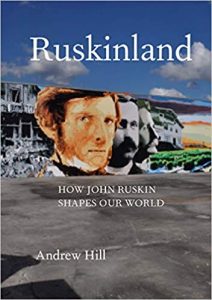I thoroughly enjoyed reading Ruskinland: How John Ruskin Shapes Our World by Andrew Hill over the weekend. As the subtitle indicates, it isn’t a biography but rather an exploration of the influence Ruskin has had in a number of domains, from helping establish the National Trust as steward of the countryside – and encouraging the formation of the Sierra Club in the US – to shaping views about art, to influencing views about capitalism and the dignity of labour on the left of the political spectrum.
I’ve never read a biography of Ruskin, and he doesn’t emerge from this book as an obviously likeable character. In fact, pretty weird. The book I have read (bought at Brantwood, Ruskin’s home in the Lake District) is his famous anti-capitalism, anti-industrialism tract, Unto This Last. Ruskinland sent me back to it, and it still seems completely unconvincing and hyperbolic, for all that no sentient being would deny the horrors of the Industrial Revolution, or even modern capitalism.
Count me in on the need to ensure environmental sustainability, decent pay and working conditions, well-crafted homes etc. But it’s vacuous not to recognise the trade-offs involved in machine-enabled growth. Machines, mass production, raised standards of living, increasingly freed women from domestic drudgery. Trains – which Ruskin hated despite using them a lot – enabled people to escape the social constraints of village life and find urban anonimity. Unto This Last seems to me unadulterated romantic conservatism. Sustainability is easier for the rich. As Hill agrees, Ruskin was also an illiberal ultra-Tory. And adds: “Like today’s Twitterati and online opinionistas, he often adopted an extreme stance for effect.” Counterproductively so, in may case.
So Ruskinland hasn’t changed my views, but it’s a great read & the issues it raises are absolutely pertinent today as we survey the ‘illth’ (that handy Ruskinian neologism) being created by modern capitalism.

